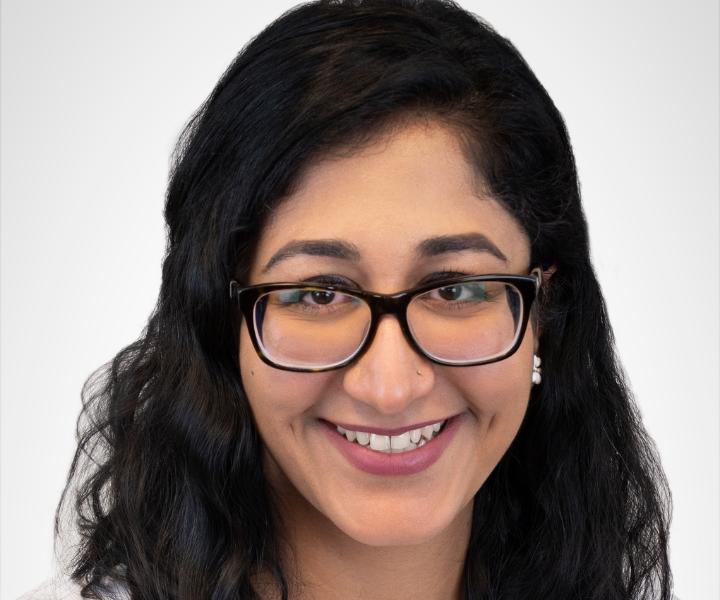For millions of neurodivergent individuals—those who identify as having autism, ADHD, intellectual or developmental disabilities, or other cognitive disabilities—that’s reality. Complex language, confusing layouts and rigid research designs quietly, but powerfully, exclude them from studies that could directly affect their futures.
While attention has been paid to physical and sensory accessibility, cognitive accessibility—especially in research—has often remained an afterthought.
Accessibility is not a buzzword—it’s a necessity.
That’s where the Open Collaboration for Cognitive Accessibility steps in. This initiative, in collaboration with the University of Ottawa, acts as a one-stop shop for cognitive accessibility resources, expertise and advice. Open is changing how researchers include neurodivergent individuals in their work.
Why accessibility matters
In Canada alone, between 2.4 to 5 million people identify as having cognitive disabilities. Globally, millions more exist. Yet many often face invisible barriers that prevent them from fully participating in society—including in academic and medical research that directly impacts their lives.
Munazza Tahir, who is the associate director of Open and a research advisor at the University of Ottawa, emphasizes the importance of integrating neurodivergent individuals into research processes from the ground up.
“This means including people who have lived experience in research right from the planning stage onward,” she explains. “They help shape the questions, the approach, the language and the outcomes.”
Reframing the research process
A key element of inclusive research is rethinking how questions are asked. As Mike Oliver, an influential disability rights advocate and pioneer of the social model of disability argued, instead of placing the burden on the individual—for instance, asking “Why can’t you open this can of beans?”—inclusive research flips the script: “Is this can of beans designed in a way that some people cannot open it?”
This simple shift highlights an essential truth: barriers often do not lie within individuals, but within systems and designs around them that fail to accommodate diverse needs. Research must acknowledge these dynamics to be valid and ethical.
Tahir gives the example of consent forms, often filled with jargon and complex language. These forms can exclude neurodivergent individuals from participating before the research even begins.
“The responsibility is on the researcher to present information in an accessible way,” she stresses. “If brain research directly affects people with cognitive disabilities—it must be accessible to them.”

“The responsibility is on the researcher to present information in an accessible way.”
Munazza Tahir
— Associate director of Open and a research advisor at the University of Ottawa
Real-world collaboration and impact
Open’s work involves collaboration with institutions, like the uOttawa School of Nutrition Sciences at the Faculty of Health Sciences as well as at Lakehead University, to improve practical applications of inclusive research.
When uOttawa’s School of Nutrition Sciences aimed to make one of their nutrition studies more inclusive, they turned to Open. An Open advisory committee composed of individuals with cognitive disabilities was formed to provide feedback on everything from shopping habits to recipe usage. Their insights helped shape the study in ways that otherwise would have been overlooked.
At Lakehead University, the challenge was to make palliative care resources more accessible. The Open team ran accessibility testing with neurodivergent participants.
“They found that many of the pieces of information were not accessible,” says Tahir. “Information was complex, colours were odd and the layout was cluttered.” With Open’s input, the materials were redesigned to be more usable for the people for whom they were created.
Sharing knowledge, shaping change
Open’s vision extends beyond individual projects. They focus on knowledge mobilization—making sure that inclusive research doesn’t sit on a shelf but reaches the communities it is meant to serve.
“Research results need to be shared with people with cognitive disabilities and wider communities because it’s about them,” says Tahir.
To that end, Open produces accessible infographics, videos, documents and even Easy Read materials, following language guidelines specifically tailored to neurodivergent populations. Their approach is systematic, detailed and grounded in the real experiences of those often overlooked in traditional research models.
Training the next generation of researchers
Changing research culture starts with training. Open offers training and workshops tailored to various stages of the research cycle. From designing studies to disseminating findings, the training helps researchers move from awareness to action.
“The next step is large-scale training and implementation,” says Tahir. The goal is to secure funding to certify researchers and expand the reach of their model. “It really takes champions and leading voices to talk about the importance of neurodivergent inclusive research.”
Tahir stresses the difference between simply consulting neurodivergent individuals and meaningfully including them in the process. Inclusion means shared decision-making and power—elements that are crucial if research is to be equitable and scientifically sound. Neurodivergent voices have traditionally been excluded from research, especially in medical and health sciences. “Neurodivergence must be factored in as part of research teams and must inform research decision-making,” she insists.
A growing movement
Momentum is building. More and more researchers are recognizing the value of inclusive practices and are reaching out for support.
Each new partnership, each advisory committee, and each redesigned research project signals a growing understanding that neurodivergent inclusive research is not optional. It is essential to both ethical and effective science.
